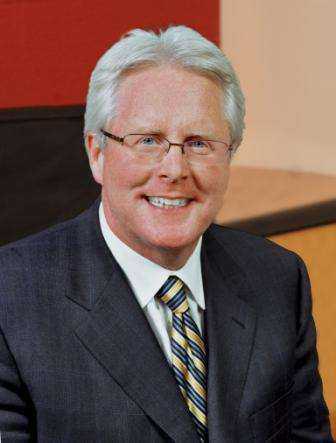$7 Mil. Accord Reached for Man Crushed Under Granite Slab

Tom Duffy, Esq.
A man rendered paraplegic after being crushed under a slab of granite has reached a $7 million settlement with the manufacturer of a stone cutting table and two distributors of the table.
Troy Eap, 34, of Upper Darby, Delaware County, had his spine crushed March 24, 2009, when a 1,200-pound slab of granite fell on him out of the "Intertool Slab Rocker Table" made by defendant Leitch & Co. Inc. The table is designed to be rocked into a vertical position so a stone could be placed into the table; the table is then placed back down into a horizontal position so the stone can be worked on, according to court papers.
The table was shipped from California by Braxton-Bragg Corp., which distributes stone-industry products throughout the country, according to court papers. Braxton-Bragg sold the table to defendant DTD Enterprises Inc., doing business as Stonehenge 4 Stone, which, in turn, sold the table to Eap's company, Gennex Advanced Surfaces, according to court papers.
Braxton-Bragg tendered its $4 million insurance policy limits; DTD tendered its $2 million policy limits; and Leitch tendered its $1 million policy limits, plaintiff's counsel Duffy + Partners in Philadelphia said.
Eap was co-owner of a small business that shapes and finishes marble and granite for installation in kitchens and bathrooms, according to the plaintiff's settlement conference memorandum.
Eap and his co-worker, Ngeth Lon, were transporting the granite into the Gennex workshop by using a forklift and clamp, according to court papers. After the granite was lowered onto the table's legs, a clamp was removed from the top of the stone and the table was moved to a 90-degree position, the stone fell toward Eap, according to court papers.
The defendants said in court papers that Eap had used the table for three years without a problem and that Eap assumed the risks of his actions.
DTD's mechanical engineering experts, William H. Daley III and Gregory J. Paulsen, said in their report that it was unsafe for Eap to stand between the forklift truck and the granite slab, according to court papers.
Eap brought claims of strict liability, breach of warranty and negligence, according to court papers.
The claim of Eap's and Lon's alleged comparative negligence would have mattered if the plaintiff did not drop the negligence theory, the firm said.
Braxton-Bragg, among other arguments, said that it never carried the table in its catalog and it only served as a broker between Leitch and DTD, according to defense papers.
"Given the current state of products liability law we believe the overall settlement was fair to Mr. Eap given his injuries," Joseph N. Bongiovanni IV of Marks O'Neill O'Brien & Courtney, Braxton-Bragg's attorney, said.
Given Eap's injuries, resolving the case was a good result for his clients, Bongiovanni said.
Bongiovanni also said that they wish the best for Eap.
Mariel C. Esch of Marks O'Neill was Braxton-Bragg's co-counsel.
The firm took the position that, if the defendants did not settle for the policy limits, they would no longer be willing to settle and the defendants would run the risk of facing bad-faith claims if the verdict was above their policy limits.
Lietch & Co.'s attorney, Gary S. Williams of Baginski Mezzanotte Hasson & Rubinate, declined comment.
Joseph M. Oberlies of Connor Weber & Oberlies, DTD's attorney, did not respond to a request for comment.
Leitch Vice President Dennis Stoscher, who designed the table, said the table was designed to only be used with a mobile A-frame to transport the stone, the plaintiff's papers said. But Eap said in court papers that Leitch sold the table without the A-frame and without any instructions, manuals or warnings about how to use the table safely.
Distributors Braxton-Bragg and DTD also did not advise end-users regarding the proper use of the table, the plaintiff's papers said.
"The table was sold without the key safety element, the A-frame," the plaintiff's papers said. "It had no other safety features to secure the stone to the table. It did not have a means of limiting the angle of the table and preventing it from tipping forward. The defendants also failed to provide any instructions, manuals or warnings. They failed to warn that the table must not be used with a clamp and that the table had a propensity to tip over."
Eap must use a wheelchair and has bowel incontinence, the plaintiff's papers said.
The firm said Eap's case is a case that shows the potential pitfalls of a Pennsylvania legislative proposal that would make it so "innocent sellers," who do not alter a product but just play a role in the product's trip through the stream of commerce, would not face strict liability for defective products.
Without strict products liability, Eap would only have recovered $1 million from Leitch, which would not have been enough to pay for his housing and medical bills for the rest of his life, the firm said.
While the accident occurred in Delaware County and the table was sold in Delaware County, the case stayed in Philadelphia because the companies do business in the city, the firm said.
The defendants joined Eap's company, Gennex, on the theory that because the company did not carry workers' compensation the company was negligent, the firm said. Companies that don't have employees can opt out of workers' compensation.
Portions of the rocker table were fabricated by additional defendant AFTAB, but AFTAB is out of business, Leitch & Co. said in its settlement memorandum.

